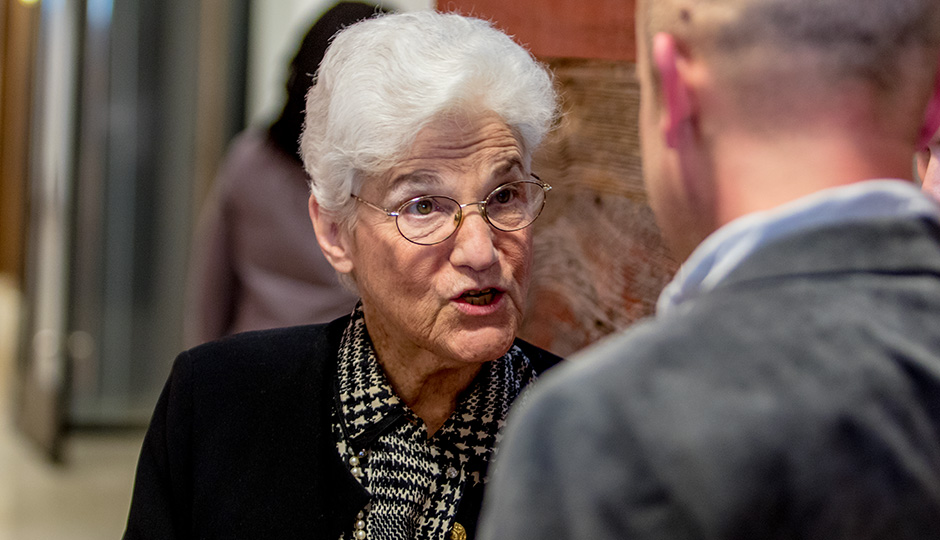How Lynne Abraham’s Collapse Changes the Mayor’s Race

Lynne Abraham. | Photo by Jeff Fusco.
Less than 10 minutes into the first televised debate of the 2015 mayoral race, Lynne Abraham crumpled to the floor of the stage at the Kimmel Center. She was quickly helped to her feet by Nelson Diaz, who was standing to her left. “I’m fine, I’m fine,” she said. Then she added, heartbreakingly, “I’m sorry.”
Abraham left the stage, and at the advice of a doctor in the room, she didn’t return to the debate.
Whatever you think of Lynne Abraham, it was a distressing scene to watch. And it was, for Abraham’s electoral prospects, a potentially devastating moment.
Let’s state the obvious first. Young people faint too, not just older ones. What happened at the debate to Abraham isn’t, on its own, remotely disqualifying, Abraham seemed completely fine shortly after falling down, and she mingled with the crowd once the debate was over.
Abraham’s problem is that very few people are likely to look at her collapse in a vacuum. She is 74 years old. If elected, she would be the oldest big city mayor in modern U.S. history. Abraham’s age—and the corollary worry that she might not have the sort of contemporary vision needed to lead Philadelphia into the future—is perhaps her greatest weakness as a candidate. Her collapse last night lights up that weakness in flashing neon.
This is like Jim Kenney getting caught with a binder labeled “Marching Orders” that’s signed by Johnny Doc. It’s like Tony Williams ripping off a mask and revealing a creature with three-heads that eerily resemble those school reform billionaires from the ‘burbs. (Yes, I’m exaggerating to make a point.)
What makes this even more damaging for Abraham is that a strong performance in the debate was crucial for her campaign. She needed a good showing to slow Jim Kenney’s ascent, and to convince reluctant donors to give her the cash she needs to compete. Abraham’s lead was already evaporating with the Super PAC-bolstered Kenney and Williams ad blitz of recent weeks. I was expecting Abraham to take the stage tonight with guns blazing. She never got that chance.
Now, is it possible that this could actually work in Abraham’s favor? Don’t dismiss the possibility out of hand. After all, the discovery of an FBI bug in Mayor Street’s office only helped his re-election bid against Sam Katz, and that too was a moment that played to people’s worst fears about Street. But unlike Street, Abraham’s campaign doesn’t have a villain to tar (nor does she employ Frank Keel or David Axelrod).
So no, odds are this hurts Abraham—potentially a lot.
Abraham does have an ultra-loyal core of supporters who’ll be with her to the end, no matter how bitter or sweet it may be. She’s that sort of figure. But she’ll need a much broader base than that to win this thing. Voters like to vote for winners. If it starts to seem that Abraham is something of an underdog, a sizable chunk of her supporters will break off.
It seems likely that a lot of those voters, though hardly all, would break for Kenney. Why? Because Philadelphia voters tend to vote along racial lines, and because Kenney, the son of a firefighter, probably has some cultural affinity with voters who remember Lynne Abraham’s days as district attorney fondly.
Some people will likely now suggest to Abraham that she should withdraw from the race. She was having none of that after the debate. She mixed with the crowd at the Kimmel Center and took questions from the press. Nothing like this had ever happened before, she said. The campaign continues, she said.